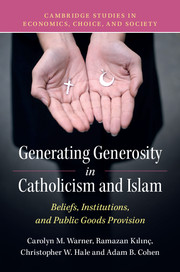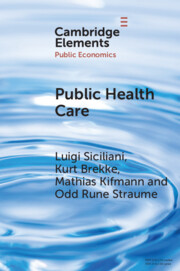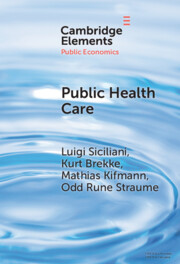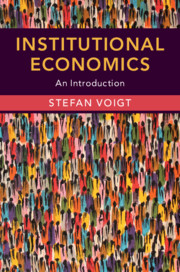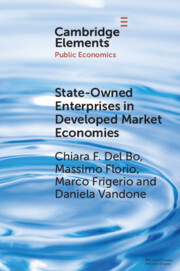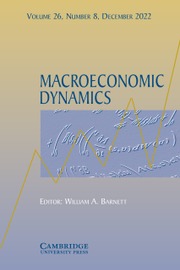Generating Generosity in Catholicism and Islam
Using an innovative methodological approach combining field experiments, case studies, and statistical analyzes, this book explores how the religious beliefs and institutions of Catholics and Muslims prompt them to be generous with their time and resources. Drawing upon research involving more than 1,000 Catholics and Muslims in France, Ireland, Italy, and Turkey, the authors examine Catholicism and Islam in majority and minority contexts, discerning the specific factors that lead adherents to help others and contribute to social welfare projects. Based on theories from political science, economics, religious studies and social psychology, this approach uncovers the causal connections between religious community dynamics, religious beliefs and institutions, and socio-political contexts in promoting or hindering the generosity of Muslims and Catholics. The study also provides insight into what different religious beliefs mean to Muslims and Catholics, and how they understand those concepts.
- Studies how two mainstream religions with a weak capacity to materially reward or punish members for contributing (or not) to the group still can elicit generous helping behavior, appealing to readers interested in public choice economics and rational choice theory
- Studies the impact of the size of the welfare state on generosity and public goods provision
- Will address debates in politics, public policy, and in the social sciences about the effect of government-based social welfare on private charity
Reviews & endorsements
‘The authors provide a carefully-crafted study of Muslims and Catholics and what determines their decisions to support charitable organizations. They employ cutting edge methodology that should be of interest to everyone studying the topic of religion. Their finding that both theology and institutions shape generosity moves us beyond simple dichotomies of religious behavior and reveals the complex nature of religiously-motivated action.' Anthony Gill, author of The Political Origins of Religious Liberty
‘How do religious beliefs and institutions come together to encourage prosocial behaviors, like charitable giving? Generating Generosity in Catholicism and Islam synthesizes a wide range of scholarly work to provide a compelling and coherent answer to the question of how religion encourages adherents help others, particularly those who are poorly positioned to reciprocate in the future.' Lisa Blaydes, Director, Abbasi Program in Islamic Studies, Stanford University, California
Product details
April 2018Adobe eBook Reader
9781108591607
0 pages
19 b/w illus. 14 tables
This ISBN is for an eBook version which is distributed on our behalf by a third party.
Table of Contents
- 1. Introduction: what we know and don't know about religious-based generosity
- 2. The charitable consequences of institutions and rituals in Catholicism and Islam
- 3. Generosity, public goods provision and religious beliefs in Catholicism and Islam: an experiment
- 4. The meaning of religion to Catholics and Muslims
- 5. Religious beliefs, prosociality and connections to others
- 6. Belief, belonging, and giving in Catholic parishes and Muslim associations
- 7. Religious minorities and collective goods provision
- 8. Does the welfare state undermine the generosity of Catholics and Muslims?
- 9. Conclusion.

